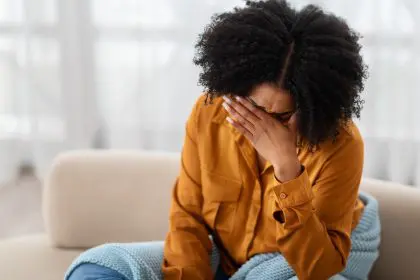In an enlightening conversation with rolling out Health IQ, Dr. Kimberly Williams, a distinguished pediatric neuropsychologist and clinical psychologist, brings her 25 years of expertise to address the critical topic of mental health in African American children. With practices in Long Island and Brooklyn, New York, Dr. Williams has dedicated her career to providing comprehensive mental health services and advocating for culturally competent care. A Spelman College graduate with extensive training from prestigious institutions including Cornell Weill Medical Center and NYU Medical Center, she brings a unique perspective to the intersection of mental health, cultural identity and childhood development.
What are the most common mental health challenges among Black children, and how can they be addressed?
Let me just say that for children from all backgrounds, some of the top-tier issues are relationship problems with peers and family, eating and body image issues, bullying — especially with the young side of social media, cyberbullying — and abuse. But to be more specific, what is more challenging for Black children are not these issues — because children have the same issues — but for Black children, it is the level of mental health services available, impediments to accessing care and getting people to understand that they need culturally competent care. So the issues are the same, but how they are to be addressed is where things differ.
What are some ways parents can recognize early signs of mental health issues in their children?
For children, usually there is a change in how they communicate, and their social and interpersonal skills change a bit. This could range from changing friendship groups, conflicts amongst your child’s friends, changes in interactions. they might be more short-tempered or more aggressive, flare-ups; sometimes [it’s] even the other extreme of complete isolation, not wanting to be involved in family activities, not wanting to spend time with peers or siblings the way they used to. Also pretty prevalent are changes in sleep or appetite, children sleeping too much, not getting enough sleep, decrease in appetite.
Parents seem to also notice changes in grades, academic performance changes, sports performance and interest in their extracurricular activities changes. And so when these things really start to take a dramatic shift is when parents should really, really try to hone in and start to ask those questions, because these are easily early signs of mental health challenges.
What role does trauma play in the mental health of Black children, and how can it be treated?
I’m glad you brought that up as a hot topic, and how that word is used so freely right now. So just to clearly kind of delineate, trauma is really a very deep emotional wound, and it can be feelings that when someone feels like their life is being threatened. We tend to really think trauma as witnessing or experiencing some kind of violence or aggression.
Within the black community, our black children, they experience something called microaggression, [which] is a repeated discomfort over and over again, and that takes on a wide variety. It could be inappropriate comments made on a daily basis by a teacher, or it could be peer bullying, or it could be alienation, and so, when we think about treating trauma, it depends. There’s so many different therapy modalities to effectively treat trauma. So you really want to think about the environment the child is in, the environment the trauma occurred in. You want to think about underlying issues.
You want to think about what the child’s available support systems are when you’re picking a treatment modality for trauma.
How does racial identity and cultural awareness impact the mental health of African American children?
Having a positive cultural identity can really help promote resilience to mental health issues. When we think about our children, we think about the effects of racial discrimination, and how experiences — or even perceived discrimination — can a result in children feeling excluded, mood changes and lowering self-worth.
We really want to highlight the importance of inclusive environments. If a child has a more positive cultural identity, this really helps to promote their resilience and self-esteem, and helps to give them some strength against some of the effects of discrimination. For children, being in an environment where there’s a lot of cultural representation and having access to positive and diverse representation is always helpful to build this resilience against trauma.
What are some strategies that Black children can use to navigate bullying and exclusion?
I’m first going to say that with bullying — and to navigate these challenges — you do want to help empower Black children again through cultural education, promoting advocacy and friendships and allyships and social-emotional skill building, but as I say that, I think about how this is helpful to build resiliency in Black children. In order to stop things like bullying and exclusion and stereotyping in school, you need a very systemic approach. So, it’s not just the emphasis on the children of color. It is a systemic approach where the administration, faculty, teachers, student body, and all embrace cultural awareness. They all receive the cultural education they all have a sense of. We are a school community: we focus on advocating for one another and for our neighbor, no matter, color, ethnicity, or religious background.
What are your thoughts on medication and talk therapy for mental health treatment?
I always say psychotherapy, psychology and psychotherapy is a science; it’s not just my opinion. I always feel like I need to get a T-shirt that says that there is a science behind this. With sciences in the health care field, there’s also consideration of something that we call best practices. Best practices are what are the top-notch a-line, go-to interventions to help someone feel better, and best practices for many mental health issues include medication and therapy. Medication is not always warranted, but it could always be an option. In many circumstances talk therapy is more than just conversational. Again, there are scientific, empirically based approaches to treating anxiety, depression and trauma, and many, many different disabilities. I always like for people to understand. There is a solid scientific foundation for all of this.
What advice would you give to someone aspiring to become a psychologist?
Patience and perseverance. I talk to so many young people all the time about their career goals, and there seems to be this sense of “I need to hurry up, get it done and do it fast.” No, you don’t. What you need to do is focus and put one foot in front of the other. Recognize that you’re going to move forward, and you may hit some obstacles that cause you to have to take a few steps back. So, what if you’ve got your goal? You just walk around it, walk over it, walk through it, knock it down and you keep going until you reach your goal. It doesn’t matter how you get there. It’s that you get there, and you are able to dive into your passion. Once you’re able to dive into your passion, the sky is the limit.













